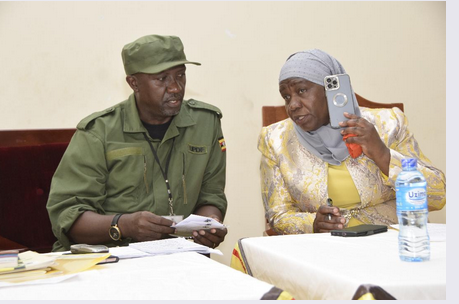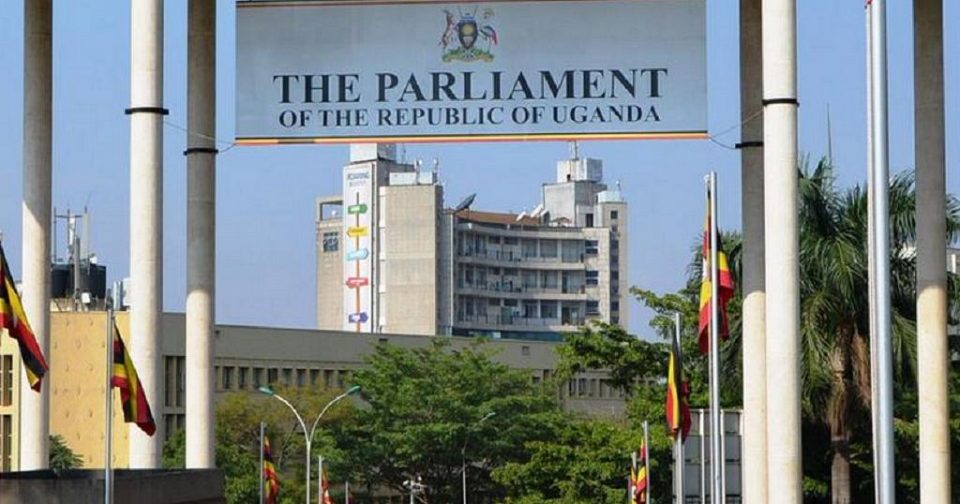
Don’t fall for Orders from above – Anite tells Uganda Airlines officials
August 31, 2019
Battle for Kampala: Why Lukwago Must Sweat To Retain His Seat
August 31, 2019By Our Reporter
A raging row is brewing in Parliament following revelations that a clique of bigwigs in government and the private sector indiscriminately shared hundreds of properties left behind after former President Iddi Amin expelled Asians in September 1972.
The scandal was unearthed following a sharp disagreement between current Departed Asians Property Custodian Board (DAPCB) Executive Secretary, George William Bizibu, and his predecessor, Bernard Tumwesigye, clashed right before members of the Committee on Commissions, Statutory Authorities and State Enterprises (COSASE) who had summoned the two men following a petition by Kalungu West MP Joseph Ssewungu.
Genesis
The saga traces its roots to May 2017 when Ssewungu asked the COSASE MPs to direct the Custodian Board to bring the inventory of the properties they hold in their trust in Kalungu district. According to Ssewungu, he had information that some of the properties were sold under unclear circumstances. Consequently, COSASE boss Mubarak Munyagwa tasked the Custodian Board to provide the list, but DAPCB boss Bizibu requested for two months to submit the inventory. He argued that he does not know the list of the properties under the board because most of them were not documented yet he wasn’t given a handover report from his predecessor.
In defence however, his predecessor Tumwesigye shot back, accusing Bizibu of telling lies to Parliament. Tumwesigye noted that by the time he left records indicated that the Custodian Board had 3,323 properties. He further said the inventory numbers could even be confirmed through the Auditor General’s reports.
The pair’s altercation then prompted Munyagwa to issue a two-week ultimatum for the Custodian Board to submit their inventory and also put a caveat on the sale of any properties until Parliament fully probes the matter.
Properties Shared
The Custodian Board later tabled the inventory before Cosase but the tables were turned when Makindye East MP Ibrahim Kasozi tabled documents showing how top government officials and businessmen had fraudulently acquired many of the properties on the list.
Kasozi, who is also COSASE Vice Chairperson, said that a scrutiny into some of the documents indicated that a number of people used forged powers of attorney from Asians who never returned to Uganda to possess the properties.
Kasozi also wondered how a few Asians came to own over 100 properties within Kampala.
“We want to know under what criteria one person has over 100 properties in Kololo, Old Kampala, Namirembe Road, Kawempe, Bukoto, Kololo Hill Drive. What is really perturbing me is that some Asians have never come back but the people meant to protect the interest of government are conniving with others to take government property,” Kasozi said.
Gideon Onyango (Samia Bugwe North) pointed out that the Asians who did not return to Uganda were compensated and wondered under what circumstances some Asians like city tycoon Sudhir Ruparelia claimed ownership of the said properties thereafter.
“Sudhir owns some of these properties yet some of those properties were already compensated by government but government still pays rent to Sudhir like the building where Parliament rents. Government is losing a lot of money to fraudsters. I ask you to appoint a small committee to go through that list,” Onyango said.
It is worth noting that Parliament’s Contracts Committee awarded Sudhir the Shs5bn contract for Queen’s Chambers with tax payers parting with Shs4, 544,064,939 annually for the building as well as an additional Shs70, 040,670 for the installation of window blinds.
The contract was awarded to Sudhir after he beat other bidders including Yampe Limited (edged out for failing at financial analysis stage) as well as Rumee Investment Limited (failed to meet the requirement of 400m radius within the current Parliament building) and Twed Property Development (rejected for failure to submit a bid security).
Indeed, this position was backed by a letter authored by Bart Katureebe, former Attorney General and Minister of Justice in response to Basoga Nsadhu, Minister of State for Finance who sought the Government Principal lawyer’s opinion on compensation claims by Asians in 1997.
In his June 23, 1997 letter, Katureebe, who is now the Chief Justice, said that Uganda had discharged its obligations under international law when it paid the money to the Indian government and that the Indian government had a duty to pass on the compensation to its nationals since it not only negotiated on their behalf, but received it on their behalf.
“Therefore, all those Indian citizens for whom compensation was passed to the Indian Government have no further claims in Uganda. Where they have been given would be getting a double benefit,” Katureebe wrote.
He added that the Indians who claim that they did not get paid by their Government when in fact they were listed for payment should be advised to contact their Government.
It should be noted that former President Amin agreed to pay the Asians who lost their property and set up a fund at Bank of Uganda, with Asians who left for Canada and the United Kingdom paid through the Uganda High Commission for the value of their properties and 30% as disturbance allowance.
Katureebe’s position that Asians were compensated was further reaffirmed by Bank of Uganda in a June 7, 1999 report to the Chief of Military Intelligence, then Major Noble Mayombo (RIP), in which the Central Bank attached a list of all properties compensated through British High Commission and United Nations High Commission for Refugees.
The Central Bank revealed that 67 British Asians were paid through the British High Commission while 344 stateless Indians were compensated through UNHCR. However, the Bank of Uganda wasn’t able to determine when the payments were made.
The letter further states that prior to compensation, an Indian delegation visited Kampala in October 1975 and examined items that were left behind by Indian nationals and the two Governments agreed on a fee of Shs13, 415,414 as mutually satisfactory compensation for the assets left behind and that it be paid to the Indian Government for disbursement to claimants.
“As for those who were holders of Indian passports and therefore went to India, we were unable to provide their names and the list of their properties. We, however, have evidence that compensation to those individuals were Government to Government arrangement,” the report read in part.
Meanwhile, DAPCB boss Bizibu acknowledged that some of the faces behind the properties acquired the assets fraudulently. He further disclosed that since taking office two years ago, he has been battling a number of ‘mafia’ over the properties under contention.
Bizibu also said that scrutiny of some of the powers of attorney used by individuals to take over the properties were forged, This was after the Registrar General’s office denied ever registering such powers in the country.
“I have a copy of the powers of attorney and although I am not a lawyer but you would categorically see that this isn’t meant to be powers of attorney. When I came in I tried to probe and have a report from Uganda Registration Service Bureau on Plot 6 and according to information this power of attorney was never registered: it is nowhere in the country,” Bizibu said.
After Bizibu’s submission, Munyagwa announced the Committee that would investigate the matter further.
The adhoc committee named to investigate the matter is headed by Kasozi assisted by Paul Mwiru (Jinja East), Muhammad Nsereko (Kampala Central), Nathan Itungo, Donozio Kahonda, Stella Kizza and Gideon Onyango.
However, there is talk that the inclusion of Kasozi, who is a petitioner, could compromise the independence of some committee members.







